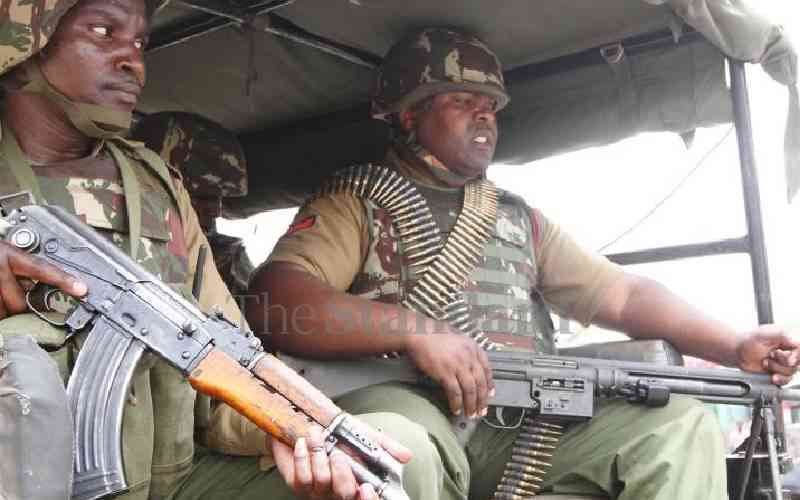
It was a hot afternoon. The air was still and stiff. The sky was amazingly clear, it was difficult to imagine it ever hosted clouds. The Land Rover weaved through the dusty thickets.
I pulled out a handkerchief to wipe my sweaty and dusty brow, just then, the driver abruptly stepped on the brakes to avoid hitting an antelope that had strayed onto our path. "That must be a sign, Sir," he said, swearing and cursing while struggling with the steering wheel. He hit the brakes again, this time harder. Armed men in kanzus, wielding AK-47 rifles, had suddenly emerged from the bushes, their guns aimed at us.